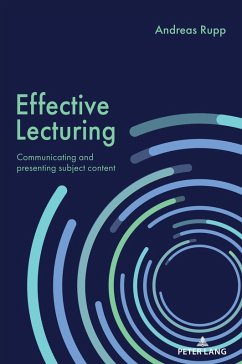
Overcoming Reading Challenges (eBook, PDF)
Kindergarten through Middle School
Versandkostenfrei!
Sofort per Download lieferbar
Statt: 36,95 €**
30,95 €
inkl. MwSt.
**Preis der gedruckten Ausgabe (Broschiertes Buch)
Alle Infos zum eBook verschenkenWeitere Ausgaben:

PAYBACK Punkte
15 °P sammeln!
Given the current emphasis on how to teach reading, also known as the debate on the "Science of Reading," this text addresses the fundamentals of reading instruction and provides practical evidence-based research and strategies to support students who may be experiencing reading challenges. With a keen focus on how to apply knowledge of effective teaching along with reading strategies, this text addresses the flexibility teachers must know in order to teach reading to a wide variety of learners. Drs. Margaret Vaughn and Dixie Massey focus on critical questions about reading instruction ranging...
Given the current emphasis on how to teach reading, also known as the debate on the "Science of Reading," this text addresses the fundamentals of reading instruction and provides practical evidence-based research and strategies to support students who may be experiencing reading challenges. With a keen focus on how to apply knowledge of effective teaching along with reading strategies, this text addresses the flexibility teachers must know in order to teach reading to a wide variety of learners. Drs. Margaret Vaughn and Dixie Massey focus on critical questions about reading instruction ranging from, "When should a child be reading?" to "How do you strengthen decoding and fluency in students?" to "What to do when a student starts middle school?" The book opens with critical questions like these and outlines each chapter with knowledge of theory and practical instructional actions teachers of all levels can engage in to support students experiencing reading challenges. As former classroom teachers and now literacy researchers and professors, the chapters reflect their combined knowledge of over 20 years along with current research and practical strategies for teachers of all levels.
Every chapter opens with guiding questions, followed by theories and recommended instructional practices to support effective and equitable reading instruction for a wide variety of learners. Key areas addressed include:
. Phonemic awareness
. Decoding
. Fluency
. Reading Comprehension
. Vocabulary
In addition, there are chapters that focus on often overlooked areas of reading instruction such as motivation and student agency, critical to support and engage readers in today's educational settings. This practical guide highlights how to support students experiencing reading challenges as well as how to engage and partner with families to support students.
Every chapter opens with guiding questions, followed by theories and recommended instructional practices to support effective and equitable reading instruction for a wide variety of learners. Key areas addressed include:
. Phonemic awareness
. Decoding
. Fluency
. Reading Comprehension
. Vocabulary
In addition, there are chapters that focus on often overlooked areas of reading instruction such as motivation and student agency, critical to support and engage readers in today's educational settings. This practical guide highlights how to support students experiencing reading challenges as well as how to engage and partner with families to support students.
Dieser Download kann aus rechtlichen Gründen nur mit Rechnungsadresse in A, D ausgeliefert werden.













